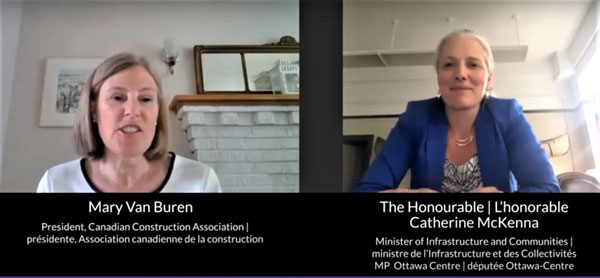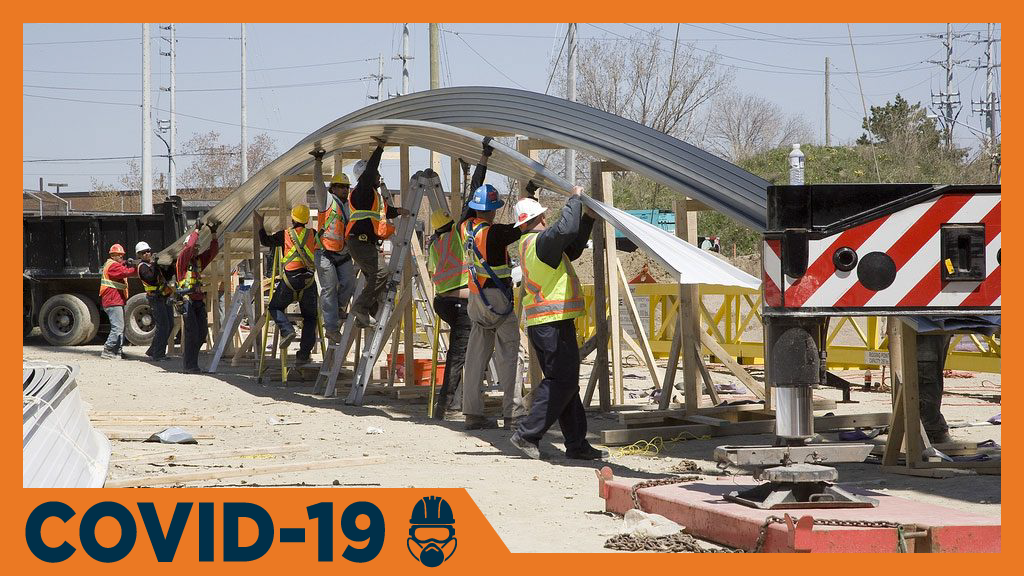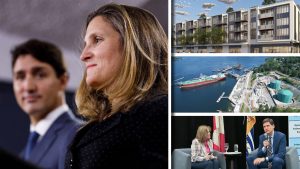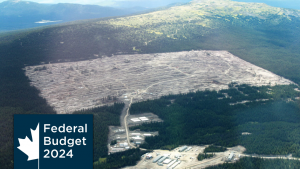Federal Minister of Infrastructure and Communities Catherine McKenna outlined her government’s vision for a green, home-grown, post-COVID construction supply chain during a recent webinar hosted by the Canadian Construction Association.
Responding to questions posed by CCA president Mary Van Buren during the association’s day-long “Un-Conference” June 15, McKenna also confirmed that the first phase of federal stimulus funding would include only accelerated money previously budgeted for and not new allocations, and promised that under her stewardship infrastructure spending would support clearly defined long-term goals rather than merely amounting to a list of projects.
“I know the construction sector is always innovating and looking at how do you do things more efficiently, how do you do things better and I think also looking at Canadian materials,” McKenna said during an interview captured on YouTube. “We should be looking at local supply chains. We’ve seen challenges with the supply chain with COVID, that’s a real problem, but also we have Canadian-made products that we can be using as building materials, cross-laminated timber is one example. I know it’s just one example but I mean, I’m in San Francisco seeing Canadian, Quebec cross-laminated timber.
“You look at low-carbon aluminum, low-carbon concrete. I think there are huge opportunities there too and we can be a leader in showing the world how we do this while creating jobs, while growing our economy and while getting good things built.”
McKenna reiterated details she had previously released about the imminent federal project funding package, noting the government will be accelerating transfers from its $33.5-billion Investing in Canada program for COVID-19 projects to provinces with a greater federal share of project funding. There will be faster project approvals and support for retrofits and health care projects as well as infrastructure for active transportation such as bike paths and walkways.

McKenna is currently consulting with the provinces to get agreements on the package as a last step before it is formally unveiled. A broader stimulus package will be released at some point in the future.
“I know everyone wants to talk stimulus but the prime minister’s being clear, we’re not in a stimulus stage,” McKenna said, referring to new funding.
The minister, named to the infrastructure portfolio after the 2019 election following four years as minister of the environment, explained her definition of “shovel-worthy” projects would be informed by her tenure in the environment ministry. She described herself as detail oriented.
“I just think it would be irresponsible with taxpayer dollars if you build things without thinking about climate change and that if it’s a hundred-year bridge or road or building you have to think about is it going to be resilient to the impacts of climate change and also how do we play our part in reducing emissions,” McKenna explained.
“I’m all for getting things done quickly but we also have to be smart about it. You don’t want to go back later. I mean if you build something poorly it’s going to be additional headaches and costs so you can do both.”
Asked by Van Buren if the government might consider longer-term planning, such as announcing 25 years’ worth of projects, McKenna said that kind of thinking meshes with spending to achieve long-term goals.
“When I came into this portfolio, we had pockets of money in areas but we didn’t have a pipeline of projects and I went to the U.K. where they did national infrastructure assessments,” said the minister. “I really understand how could we do that because I think it’s critically important. We’re spending historic amounts of money on infrastructure and we need to be figuring out what are our goals, what are we trying to do, what are the big projects and the little projects.
“It’ll be very clear what we’re trying to achieve and I’m very into objectives, very clear objectives.”
McKenna also addressed issues such as community benefits and consultation with Indigenous Canadians on projects which, she noted, proponents tend to view as roadblocks to getting a project done alongside climate policies.
“The reality is those are very important, those are actually important parts of what we’re trying to do as a government and I’m not going to shy away from that,” she said, while acknowledging the government has a role to play in helping proponents get projects to the starting line.
“We are going through an internal exercise to really figure out how do we make this as user-friendly and quick as possible.”
Follow the author on Twitter @DonWall_DCN.











Recent Comments
comments for this post are closed